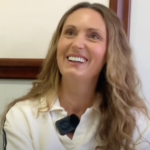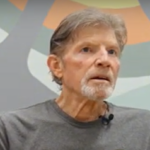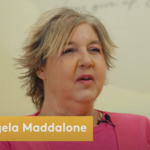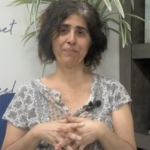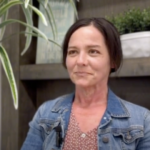Medically Reviewed by: Dr. Bautista
Our Editorial Policy
Updated on: November 19, 2019
About Rectal Cancer
Rectal cancer is a form of cancer affecting any of the cells in the rectum, comprising the last several inches of the large intestine starting from the end of the colon to the short passage leading to the anus. Rectal cancer is often grouped together with colon cancer, referred to as colorectal cancer. While both forms of cancer are similar in some of their symptoms and their general regions, rectal and colon cancers are differentiated by their treatment.
While rectal cancer can occur at any age, it is more common in people 50 years of age or older. An estimated 5 percent of Americans will develop metastatic colorectal cancer at some point in their lives. The good news is that rectal cancer is highly curable if caught early.
Causes and Risk Factors
Rectal cancer is caused by a genetic mutation that alters cells in the rectum. This allows cells to grow abnormally, eventually accumulating and forming a mass that can become a tumor. Left untreated, these cancer cells may spread to other nearby tissue or travel via the bloodstream to other organs in the body.
The exact cause of colon and rectal cancer (and other cancers) is still not known. Some experts suggest that there may be a hereditary factor, so if you have a close family member with rectal cancer, you may have an increased risk of the cancer yourself. Lynch syndrome, also known as hereditary nonpolyposis colorectal cancer, increases the risk of rectal and other cancers. Familial adenomatous polyposis, a disorder that results in thousands of polyps in the lining of the rectum and colon, is also known to increase the risk of rectal cancer.
Age remains a common risk factor with 90 percent of rectal cancer diagnoses occurring in people over the age of 50. Inflammatory bowel disease can also contribute to an increased risk of rectal cancer.
Early Detection, Diagnosis, and Staging
Exact symptoms of rectal cancer can vary from patient to patient, but common signs and symptoms include:
- A sudden change in bowel movements (diarrhea, constipation, or more frequent bowel movements)
- Dark, bloody stools
- Mucus in stools
- Abdominal pain and discomfort
- Painful bowel movements
- Sudden weight loss
- General weakness or fatigue
- Iron deficiency anemia
These symptoms can be caused by a variety of other issues that are not cancer-related. Furthermore, some cases of rectal cancer come with no noticeable symptoms or undetected polyps. The only way to know for sure is to get a professional diagnosis from your oncologist. This starts with a basic physical exam, which may proceed to a colonoscopy. A colonoscopy involves the use of a thin, flexible tube with a camera at its tip that allows for a view of the inside of the colon and rectum. This is one of the most accurate tests to determine if there are any growths in the rectum. During a colonoscopy, the doctor can easily remove tissue samples for a biopsy. In some cases, the doctor may use an endorectal ultrasound to detect signs of anal cancer or a cancerous tumor.
Once the cancer has been diagnosed, the doctor can proceed to staging. This helps to determine the severity and potential spread of the cancer to decide upon the appropriate colorectal cancer treatment plan. Rectal cancer is staged using the Roman numerals 0 to IV. The higher the number, the more severe the spread and size of the cancer.
About Alternative/Natural Treatment of Rectal Cancer
Treatments for rectal cancer include surgery to remove the cancerous tissue, chemotherapy drugs, and radiation therapy. In addition, your oncologist may apply an adjuvant to decrease your chances of the cancer’s recurrence. While these treatments are effective, they can come with certain side effects or negative outcomes that weaken the immune system. Alternative and natural treatments allow for gentler methods that don’t sacrifice effectiveness. Alternative treatment for rectal cancer provides options that avoid harsh chemotherapy drugs and invasive surgical resection procedures in order to help you fight the disease effectively.
Immunity Therapy Center offers a wide range of targeted therapy options that are tailored to your personal health needs. There are various clinical trials available as well that may prove to have beneficial outcomes in some patients. Our goal is to support your natural healing while building a positive relationship with each of our patients. Contact us today to receive your custom alternative treatment for rectal cancer.
Sources:
Therapies we useAt Immunity Therapy Center, our goal is to provide objective, updated, and research-based information on all health-related topics. This article is based on scientific research and/or other scientific articles. All information has been fact-checked and reviewed by Dr. Carlos Bautista, a Board Certified Medical Doctor at Immunity Therapy Center. All information published on the site must undergo an extensive review process to ensure accuracy. This article contains trusted sources with all references hyperlinked for the reader's visibility.
Customized Care For the Body And The Mind
Discuss Your Custom Alternative Treatment Plan With Our Team Today
Hear from Our Patients
See why the Immunity Therapy Center is a trusted name for medical tourism and cancer treatment centers in Mexico.
Start Your Healing Journey with a FREE Consultation
At ITC, we understand the importance of feeling heard and supported. Fill out our form, to speak with one of our patient advocate in the next 24 hours to have a free consultation and guidance, creating a personalized treatment plan just for you. You’re not alone on your path to healing. We’re here to support you through every step!


